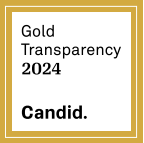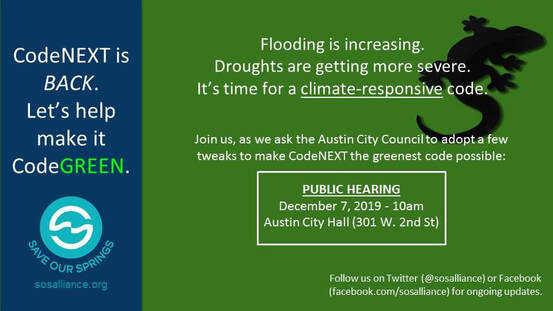 The City of Austin's rewrite of its land development code (aka CodeNEXT) is back, and we're working on ways that we can green it up. So far, we've had a ton of great suggestions from our members and are working to incorporate them in our list of priorities. If you have any environmentally focused suggestions that you would like to share with us to help turn CodeNEXT into CodeGREEN, please email them to [email protected]. The next public hearing on CodeNEXT will be at Austin City Hall (301 W. 2nd Street) on December 7, 2019 at 10am. We encourage you to join us on that day, and let the City Council know what you think about the draft code. Our preliminary "CodeGREEN" recommendations can be found here. The City's draft land development code can be found here: http://www.austintexas.gov/ldc
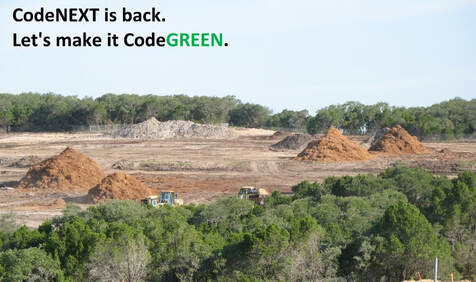 You may have heard: CodeNEXT IS BACK! On October 4, 2019, the City of Austin unveiled its latest draft of the rewrite of its Land Development Code, which will affect how land is developed throughout the city-including which environmental regulations apply and where certain land uses can be built. Since its release, our staff has been working diligently to review the new draft code and to offer suggestions for how it can be improved. Thus far, we have been able to influence two major improvements:
SOS is extremely appreciative of the Mayor & City Council for assisting us with getting the proposed SOS Ordinance amendments removed from the LDC rewrite. It is highly likely that these amendments will come back some time in 2020, so we must stay vigilant, but we are hopeful that such a process, if it occurs, will be more collaborative and deliberative. Additionally, there are several positive improvements proposed in CodeNEXT that we wholeheartedly support, including:
However, there's still much work to do. As Austin's population continues to increase and our climate becomes more susceptible to longer, more severe periods of drought, it is more important than ever that we have a Land Development Code that is responsive to these challenges. We need a code that will help make development more water-efficient and climate-resilient, and we need a code that won't lose sight of what made Austin special in the first place-it's connection to nature. With this in mind, we are asking that the City Council adopt several critical amendments to CodeNEXT to make it more climate-responsive. These amendments are summarized here, as part of our preliminary CodeGREEN recommendations. We are continuing to review the code and are working with other environmental groups to gather information, so please know that these are all still subject to change and should not be read as our comprehensive list. We'd love your feedback! If you have some environmental-focused suggestions that you'd like to share with us to consider in our comments, please send them [email protected]. We'd also encourage you to participate in the public meetings/public hearings, which can be found at http://www.austintexas.gov/ldc. 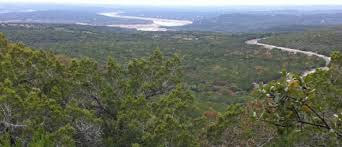 Our advocacy is making a difference. Last night, our regional transportation planners considered and rejected the CAMPO "Regional Arterial Study," a document proposing several new roads through environmentally sensitive areas. The Study ignored any financial or environmental limitations, as demonstrated by its inclusion of many new roads cutting through protected and preserve land-including the Balcones Canyonlands Preserve-as well as nine new bridges across Lake Travis. Echoing SOS's comments, many CAMPO Board members expressed frustration with the process and concerns with the proposed roadways. Ultimately, board members officially "received" the document but did not vote to accept it, and downgraded it from a "study" to a "concept" with no official authority behind it. Thank you, stay engaged, there are ongoing public comment opportunities: CAMPO is taking public comment on its 2045 Regional Transportation Plan, intended to address transportation needs over the next 25 years in Bastrop, Burnet, Caldwell, Hays, Travis, and Williamson counties. Like CAMPO's past plans, this plan so far encourages business-as-usual sprawl development and massive highways to serve it. This is the first round of public comment, with more to come. Comments are accepted until November 30. CAMPO is also developing a Regional Transit Study focusing on long-term transit connections for rural and suburban areas outside of Capital Metro's Service Area. Comments are accepted until November 22. You can learn more and submit comments on CAMPO's website here. You can find upcoming public open houses in your area here.
|
Archives
July 2024
Categories |
Save Our Springs Alliance |
Quick Links |
SOS is a 501 c3 non profit and your donation is tax deductible

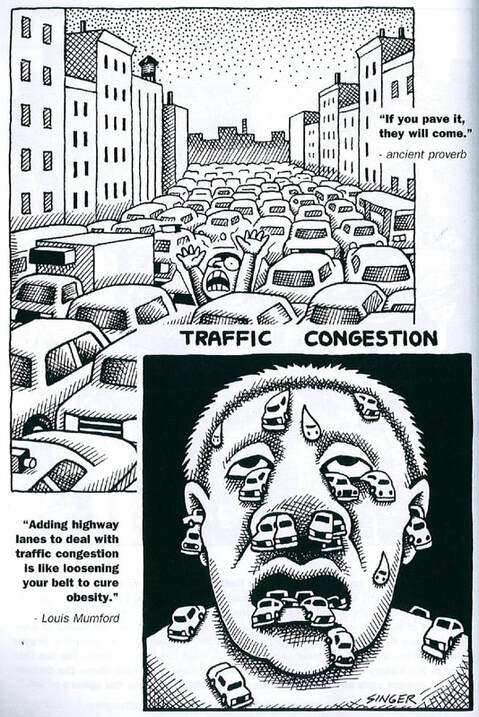
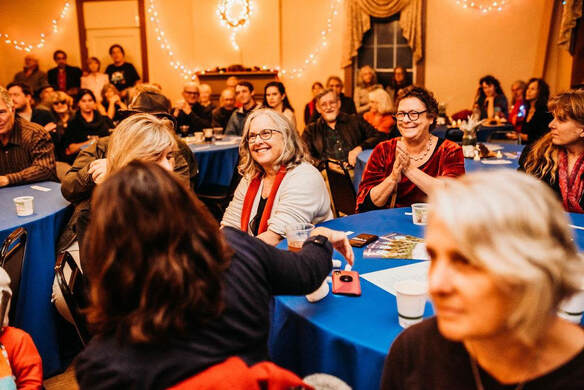
 RSS Feed
RSS Feed
